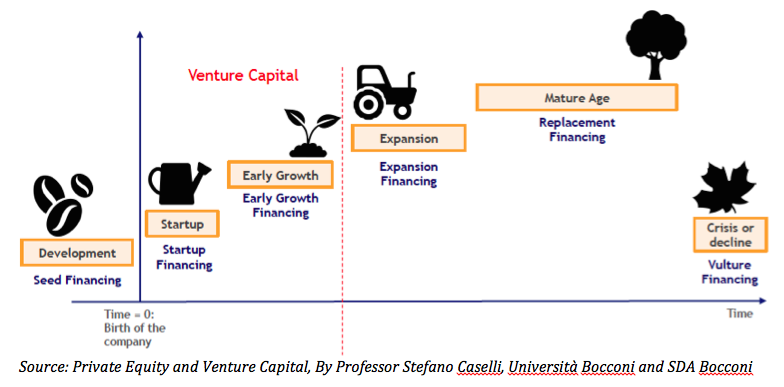We use the word startup very frequently, and usually to describe companies that have received millions in funding. We took part in a discussion within our local startup ecosystem that raised the question of what startups are. Each participant offered a definition, based on their unique point of view.
That prompted us to do a bit of research on the subject after the meeting. To our surprise, we discovered that there’s no clear definition of a startup in global terms as well.
According to Merriam-Webster, start-up means “the act or an instance of setting in operation or motion”. The Oxford dictionary ads an additional element. It says that a startup is also “A newly established business”. Thus, in order to consider a company a startup, it would need to be newly established and starting its business operation. But this definition seems a bit too narrow.
Through the lens of the business lifecycle…
Taking into consideration the business lifecycle of a company, from idea generation to maturity, being a startup is simply one of the stages of development of a company. To be exact, it is usually the second stage of the lifecycle, that characterizes with the launch of the company.
Although this is consistent with the previous definition, we can also agree that not every newly established micro/small company is a startup company. So what is the necessary component that differentiates startups from every other newly established micro/small enterprise?
How about some other popular definitions out there?
There are some other available definitions out there that could shed some light on this question. An especially interesting one is from Steve Blank:
“A startup is a temporary organization used to search for a repeatable and scalable business model.”
This corresponds with the business lifecycle, and implies that a company needs to become a successful business one day (mature company), or fail to do so and cease to exist.
Another definition is the one provided by Paul Graham (Y Combinator):
“STARTUP=GROWTH i.e. A startup is a company designed to grow fast.”
Considering these two definitions, we can say that what defines a startup is the vision and goals of the founders, their attitude, ambition and abilities for growth and scaling the business at a fast pace. So if you’re a newly established it doesn’t make you a startup, and you don’t to work with technology, or have an investment by a venture fund. The only thing that matters is growth, and how fast you can manage to find a scalable business model.
To finish, we would leave you with a final definition from Eric Ries (author of The Lean Startup), which illuminates the challenges of the environment in which startups operate and the amount of resilience and persistence founders need to possess in order to be able to grow from an idea to a mature company.
“A startup is a human institution designed to deliver a new product or service under conditions of extreme uncertainty.”
Ivana Stankovic

